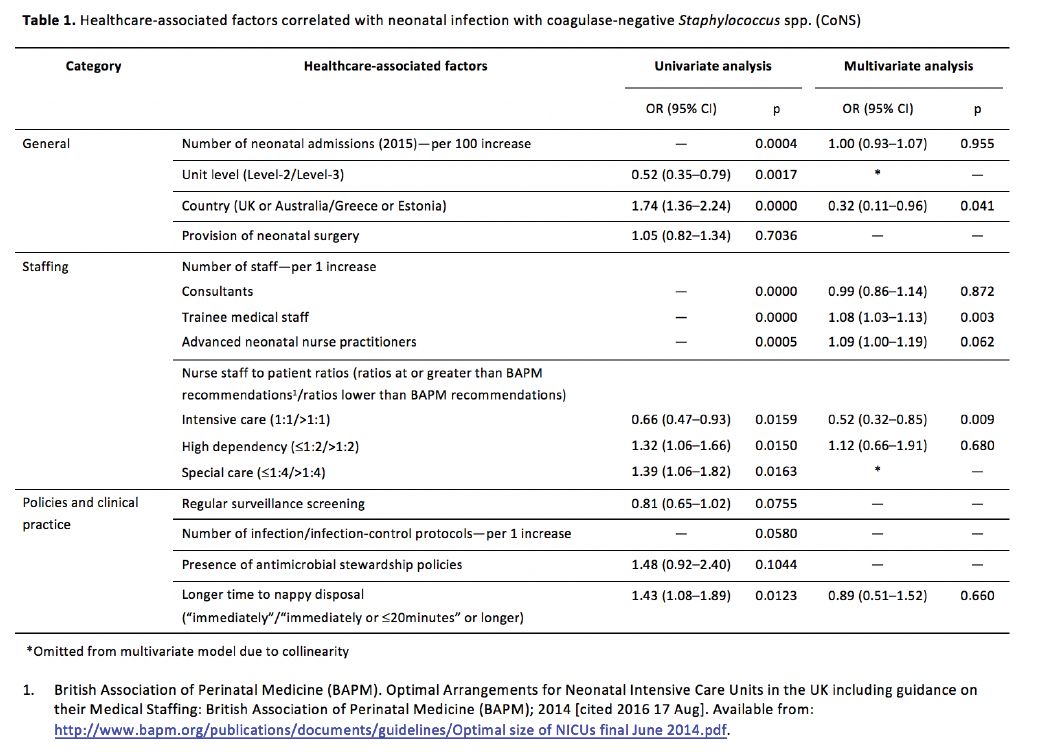Healthcare-Associated Factors Correlated with Neonatal Coagulase-Negative Staphylococcus spp. Infection
J. Wang, J. Wang, M. Anthony, K. Tan, J. Buttery, T. Watts, T. Scorrer, N. Spyridis, T. Zaoutis, J. Kopsidas, C. Kortsalioudaki
35th Annual Meeting of the European Society for Paediatric Infectious Diseases (ESPID 2017)
Madrid, Spain, May 23-27, 2017
BACKGROUND: Coagulase-negative Staphylococcus spp. (CoNS) are the leading cause of late-onset sepsis in hospitalised neonates. However, there is limited information regarding how healthcare-associated factors affect the likelihood of CoNS infection. To improve infection prevention strategies, this study aimed to identify healthcare-associated, organisational risk factors for CoNS infection.
METHODS: neonIN is a multi-national neonatal infection surveillance network which receives prospectively-collected infection data from 60 units worldwide. Infection episodes from 2011-2016 were extracted from neonIN (with infection defined as a positive culture from a sterile site, e.g. blood, CSF). Infection data were then synthesised with results of a unit-specific questionnaire distributed to neonIN units. The questionnaire covered basic unit characteristics (based on British Association of Perinatal Medicine (BAPM) standards) and healthcare-associated factor data relevant to 2011-2016. Univariate and multivariate analyses were performed using the Stata 14 statistical package.
RESULTS: 25 of 60 (42%) units responded to the survey, of which 21 were Level-3 (NICUs). Table 1 shows how various healthcare-associated factors affected the risk of CoNS versus other infections. Increasing numbers of trainee medical staff increased the odds of CoNS infection (per 1 increase: OR 1.08, 95%CI 1.03-1.13, p=0.003), while meeting BAPM recommendations for intensive care nurse:patient ratios (i.e. 1:1) decreased the odds of CoNS infection (OR 0.52, 95%CI 0.32-0.85, p=0.009). CoNS were less likely to be isolated from UK/Australian than Greek/Estonian units (OR 0.32, 95%CI 0.11-0.96, p=0.041).

CONCLUSIONS: Our study provides novel insights into healthcare-associated factors and their importance in CoNS infection. Failure to meet intensive care nurse:patient ratio recommendations was a significant risk factor for CoNS infection, underscoring the imperative of instituting adequate staffing. Increasing numbers of trainee medical staff and geography were additional risk factors; further investigation may explain these associations.



